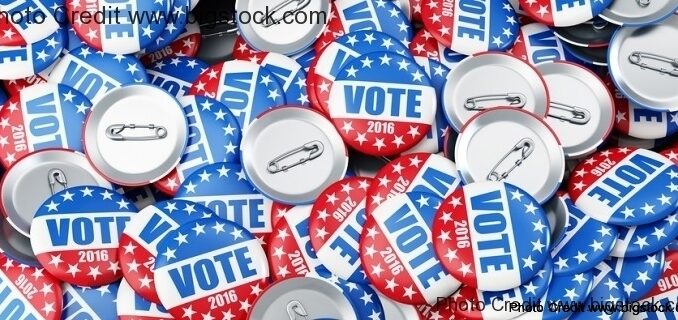
The primaries are in full swing and in America, millennials get the privilege (I use that word lightly) to watch the biggest political circus in our history. Division is an understatement, as the political conversation has become a series of contested absolutes and little compromise.
The Republican Party, otherwise known as the Grand Old Party or GOP, has traditionally seen little support from younger generations. The saying “If you are not a liberal at 25, you have no heart but if you are not a conservative by 35 you have no brain” applies here, but the issue transcends the old axiom and the true conflict lies within the campaign messaging, the narrative, and the platform of the GOP. According to the Pew Research Center, 50% of millennials are Democrats, compared to 34% of us who affiliate with Republicans. If the Republicans hope to win the general election in November, or to get more millennials working on their staff, there’s a good chance they will need millennial support. As the largest generation in our country with 83.1 million potential workers, ignoring millennials could be disastrous.
Don’t sit there scratching the toupee off your head, Trump. Here is why the GOP fails at getting millennial support.
We Are Tolerant
I’m not sure what this says about the rest of our country, but millennials are tolerant. We’ve been taught acceptance, and we are progressive on key issues like homosexuality and immigration in relation to other generations. This also applies to our rights at work, as millennials strive for a diverse community in their workplace. Deloitte found that 85% of millennials think that a diverse team is more productive. In terms of sexuality, 70% of millennials think that homosexuality should be accepted rather than shunned, compared to only 45% of baby boomers. In other areas like immigration, millennials also chime in, as 57% of us say that immigration improves our country.
Republicans in this country haven’t had, or continue to have a great track record with the LGBT community, whereas the majority of millennials accept LGBT rights. As the most diverse generation in history, this acceptance also exists in terms of race and culture. For the most part when the GOP says they want to “fix” immigration, they really mean they want to limit it. Instead of creating a system that allows productive people to obtain U.S. citizenship easily, or at a reasonable cost, the GOP would rather limit new people from coming to our country and contributing to our society under the guise of reducing terrorism.
Millennials are also pro women’s rights. The Republican’s dedication to destroying the ability for a woman to get an abortion has soured the political party in many millennial perspectives. The issue was resolved in the Supreme Court back in 1973 with Roe v Wade, and underhanded efforts to reduce access to it only makes the GOP look anti-woman.
We Don’t Want Corporate Control
Letting General Motors and Wal-Mart govern the country isn’t exactly the millennial vision of paradise on earth. Republicans want less government intervention, in exchange for corporate control. Millennials for the most part believe that government should be doing their fair share to help the poor or needy, and that things like access to affordable healthcare and education should exist in our country. 68% of millennials think that a full-time worker should be making a living wage.
The Republicans on the other hand want to keep the federal minimum wage stagnant, repeal the Affordable Care Act, and would work to reduce taxes by limiting funding to social service programs. While it’s true that many of us are entrepreneurs, many of the benefits that Republicans want to give to businesses would not affect our startups or small businesses.
The GOP Just Isn’t Cool
I know this sounds like some banal and sophomoric reason as to why Millennials don’t want to work for the GOP, but we can’t ignore the obvious truth. The GOP doesn’t have any representatives that resonate with us or anyone that we’d want to work with. The closest attempt was Marco Rubio, and he got destroyed in the primaries by Donald Trump. It shows that even though someone may have a youthful personality, what usually matters more is their stance on issues and their fortitude when the time comes to make hard decisions that go against party lines.
The women in the GOP often seem anti-women and the immigrants or minorities come off as anti-immigrant and anti-minority. On the other hand, progressives like Bernie Sanders have had tremendous success among millennial pollers as well as having retained millennials on his staff, and it’s not because he’s the youngest guy around. What’s different is his progressive and millennial-oriented ideals, and how his narrative resonates with people our age. President Obama is another shining example of someone who reached millennials during his campaign and had them working on his staff. I’m not saying it’s impossible for someone in the GOP to relate to people our age, but it’s obvious that being a caricature of a racist oil tycoon from a Looney Toons show probably won’t win you millennial support.
Republicans have forgot the art of politics and how to appeal to a wide base in a fair and compromising way. The truth is there are so many districts that have been gerrymandered to favor the GOP that capturing the popular vote in a wide geographic area isn’t always that important. It is important however, when you want to comprise a staff of the best and brightest up-and-coming talent. Democrats have had no issues in appointing millennials on their campaign staff, while many in the GOP have. The GOP needs to get back to the basics, and shift their narrative to fit a more realistic view of contemporary times. Instead of concentrating on how to combat the Democrats, they need to listen to the majority of their constituents in order to attract more young people to the party.
